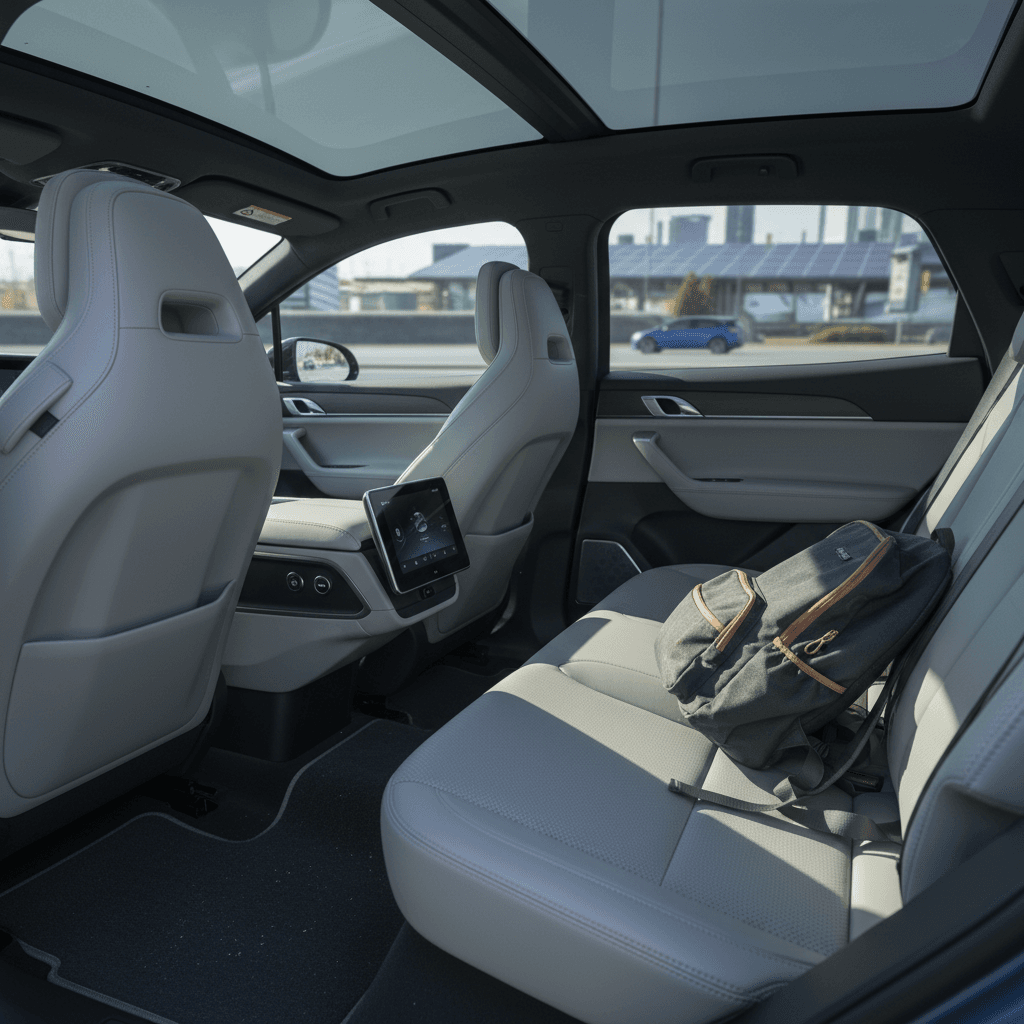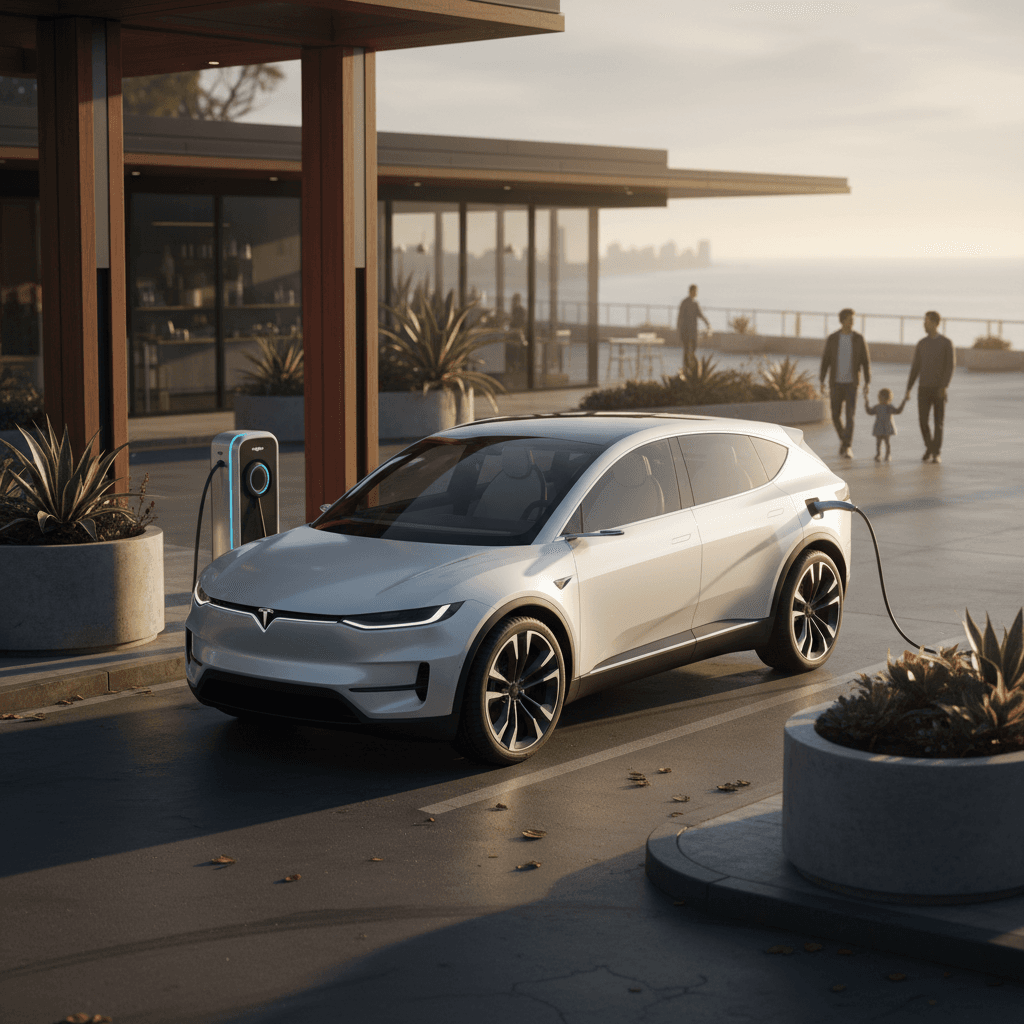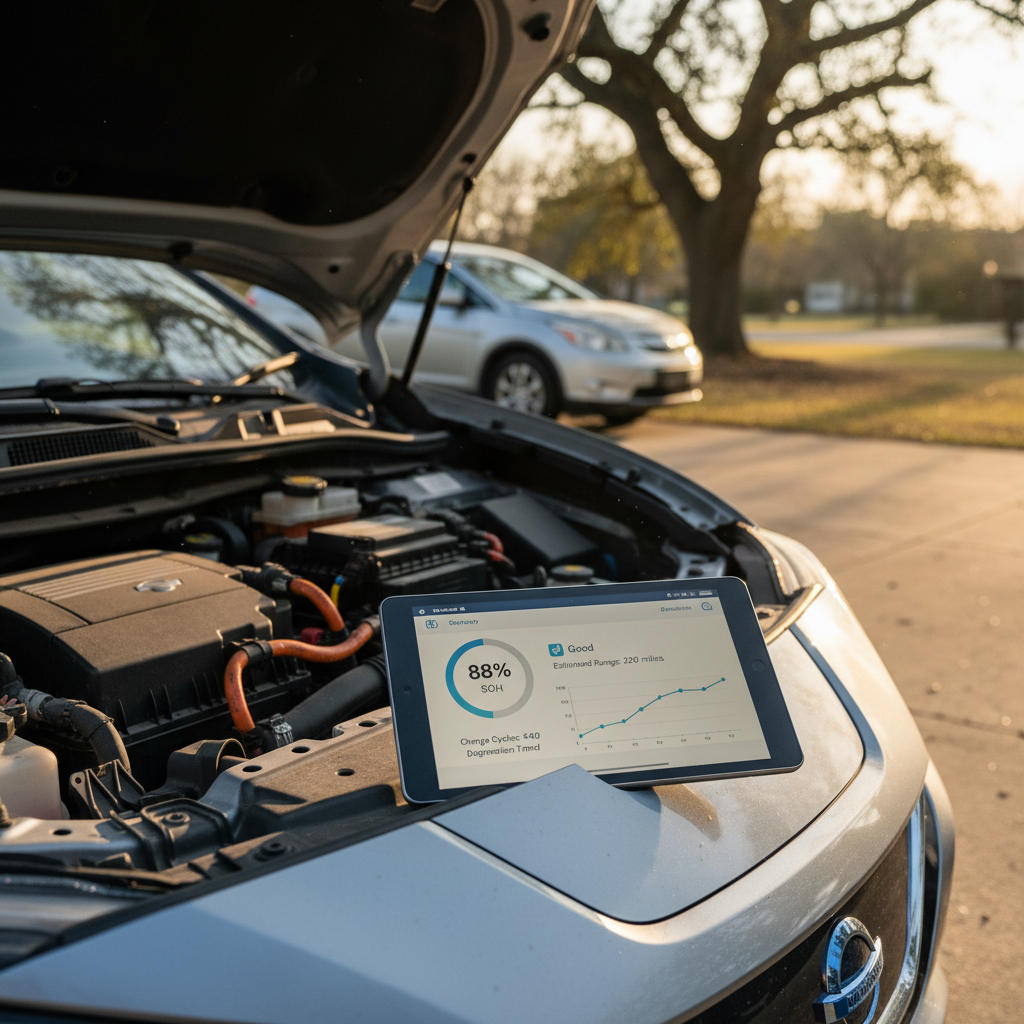If you’re shopping for the best electric cars and SUVs in 2025, you’re probably overwhelmed. Every month brings a new model, incentives change, and the conversation swings between "EVs are the future" and "EVs are over." The truth is more boring, and more useful: the right electric SUV can be a phenomenal daily driver, but only if you match the vehicle to how you actually live and drive.
Quick take
How to choose the best electric SUV for you
Before you fall in love with a specific model, get clear on how you’ll use it. Electric SUVs span everything from compact city runabouts to three-row family haulers and high-end luxury rigs. The "best" electric SUV for a suburban family of five isn’t the same as the best pick for a city apartment dweller or someone who logs 25,000 highway miles a year.
Key decision factors for picking an electric SUV
Start here before you compare specific models
Range & charging
Think about:
- Longest regular trip you do without stopping
- Home charging vs public only
- Climate (cold weather cuts range)
For most households, 250–300 miles of rated range is a healthy target.
Size & practicality
Ask yourself:
- How many people do you haul regularly?
- Rear-facing car seats or teens?
- Cargo needs: strollers, dogs, sports gear?
EV battery packs make these vehicles heavy; bigger isn’t always better in tight cities.
Budget & incentives
Consider:
- Purchase price vs monthly payment
- Federal and state EV incentives
- Fuel & maintenance savings vs your current car
Used EVs can be a sweet spot when you factor in depreciation.
Pro tip: start from your driveway, not the spec sheet
Electric SUV market snapshot
Best all-around electric SUV: Hyundai Ioniq 5 vs Tesla Model Y
If you simply want the most balanced, future-proof electric SUV, the conversation in 2025 still revolves around the Hyundai Ioniq 5 and Tesla Model Y. They sit in the heart of the market on price, space, and range, and they dominate U.S. EV sales charts for good reason.
Hyundai Ioniq 5: the pragmatic choice
- Real-world range around 280 miles in well-equipped trims.
- Excellent DC fast-charging speeds on an 800V architecture.
- Spacious, flexible cabin that feels like a small living room.
- Physical controls for climate and key functions (less menu-diving).
- Generally lower pricing than a comparable Model Y, especially once dealer discounts and incentives are factored in.
If you value ease of use, quick road-trip charging, and a more conventional ownership experience, the Ioniq 5 is hard to beat.
Tesla Model Y: the default all-rounder
- Updated versions offer up to the mid-320-mile range territory depending on trim.
- Access to Tesla’s Supercharger network plus growing non-Tesla options.
- Huge cargo area and a usable frunk; very practical shape.
- Minimalist interior with strong software and over-the-air updates.
- Still one of the best combinations of performance, efficiency, and space for the money.
Choose the Model Y if you prioritize software, fast road-trip routing, and cargo space, and you’re comfortable with a touchscreen-centric interface.
Watch for: ride comfort and wheel size
Best family electric SUV: Kia EV9 and Chevrolet Equinox EV
If you need space for kids, car seats, and gear, you want an electric SUV that’s genuinely family-friendly, not just a hatchback with a marketing department. Two models stand out in 2025: the three-row Kia EV9 and the compact-but-spacious Chevrolet Equinox EV.
Family-focused electric SUV standouts
From three-row haulers to affordable daily drivers
Kia EV9 – 3-row family hauler
- Standard three-row seating with adult-usable third row.
- Well over 300 miles of range in many trims.
- Won the 2024 North American Utility Vehicle of the Year award.
- Boxy, upright design makes loading kids and cargo easy.
- Thoughtful touches like available second-row captain’s chairs and lots of USB-C ports.
Ideal if you’re replacing a large crossover or minivan and want to electrify the whole family’s daily driving.
Chevrolet Equinox EV – value family crossover
- Compact footprint but generous interior space and cargo capacity.
- EPA range in the low-300-mile band on higher trims.
- Aggressive pricing positioned to feel familiar to mainstream compact SUV buyers.
- Clean, modern interior with straightforward controls.
A strong choice if you want a practical family EV that doesn’t feel like a science project, or a luxury purchase.
How Recharged can help family buyers
Best luxury electric SUVs: Cadillac Lyriq, BMW iX, Rivian R1S
Luxury electric SUVs are where automakers throw their best technology, and where the spec sheets start to look unreal. If you want comfort, design, and long-range touring rather than the lowest payment, a few models rise to the top in 2025.
Top luxury electric SUV picks
Comfort, tech, and long-distance capability
Cadillac Lyriq
- Striking design inside and out, with a calm and modern cabin.
- Rated range in the low- to mid-300-mile area in common trims.
- Competitive pricing versus German rivals, a lot of luxury per dollar.
- Well-tuned ride and quiet cabin make it a strong long-distance cruiser.
Great if you want a luxury EV that feels special without pushing into six-figure territory.
BMW iX
- One of the most comfortable, refined EV SUVs on sale.
- Range around 300+ miles depending on configuration.
- Strong performance with instant torque and confident handling.
- Polarizing exterior, but a truly high-end driving experience.
Best suited to buyers who value ride, handling, and interior quality more than spec-sheet bragging rights.
Rivian R1S
- Adventure-focused, three-row SUV with real off-road capability.
- Available with large packs that push claimed range into the 400-mile neighborhood.
- Thoughtful outdoor-focused features and robust accessory ecosystem.
- Over-the-air updates continually add features and refine the experience.
If you want an electric SUV that can handle ski trips, dirt roads, and camping as easily as the school run, the R1S is the benchmark.
Luxury EV SUVs are less about future tech demos now and more about quietly replacing gasoline luxury SUVs, often with more comfort and less noise, once owners understand how to charge smartly.
Best affordable and compact electric SUVs
Not everyone needs three rows and 300 miles of range. If you live in a city or simply want an efficient, easy-to-park EV that still offers SUV practicality, compact electric SUVs can be the sweet spot for both price and usability.
- Volkswagen ID.4 – Sensible, roomy compact SUV with a comfortable ride and user-friendly updates; a strong candidate in the used market as early models depreciate.
- Nissan Ariya – Quiet, refined driving experience; trims in the 280-mile range zone make solid daily drivers.
- Volvo EX30 / XC40 Recharge – Scandinavian design, strong safety focus, and compact footprints that work well in urban environments.
- Hyundai Kona Electric (and similar) – Smaller-pack EVs that are ideal for shorter commutes, with especially attractive used pricing.
City-driver tip

Longest-range electric SUVs to ease range anxiety
If you routinely drive long distances or you simply want the psychological comfort of extra range, several electric SUVs now offer well over 300 miles on a charge. Just remember: more range usually means a bigger, heavier, and more expensive vehicle.
Examples of long-range electric SUVs
Approximate maximum EPA-rated ranges for key long-range electric SUVs available in the U.S. around 2025. Always confirm exact specs for the trim you’re considering.
| Model | Type | Max EPA range (approx.) | Notable traits |
|---|---|---|---|
| Tesla Model Y | Compact SUV | ~320 miles | High efficiency, huge charging network access |
| Hyundai Ioniq 5 | Compact SUV | ~300 miles | Very fast DC charging, comfy cabin |
| Chevrolet Equinox EV | Compact SUV | ~319 miles | Mainstream pricing, family-friendly packaging |
| Cadillac Lyriq | Midsize luxury SUV | ~320+ miles | Upscale interior, strong value vs. peers |
| Rivian R1S (large pack) | 3-row adventure SUV | Up to ~400+ miles | Off-road capable, over-the-air updates |
| Polestar 3 RWD | Midsize luxury SUV | ~350 miles | New RWD variant focuses on range and price competitiveness |
Longer range is useful, but most households don’t actually need 350+ miles for day-to-day use.
Range vs charging speed
Used electric SUVs: what to know before you buy
Because early EVs have already taken their steepest depreciation, the used market is often where you’ll find the best value. But buying a used electric SUV is different from buying a used gasoline crossover; the battery pack is the most expensive component in the vehicle, and its health matters more than odometer mileage alone.
Why used electric SUVs can be a bargain
- EVs typically have fewer moving parts and often less routine maintenance than gas SUVs.
- Many 3–4-year-old electric SUVs now sell for a fraction of their original MSRP.
- Software updates can genuinely improve older EVs, especially for brands like Tesla and Rivian.
- For short commutes, a used EV with somewhat reduced range can still be more than adequate.
Key risks to manage
- Battery degradation varies by model, climate, and how the previous owner charged it.
- Some early EVs have limited DC fast-charging speeds by modern standards.
- Warranty coverage on the battery and drive unit may be nearing expiration.
- Not every dealership has the tools or training to evaluate EV battery health properly.
Do not skip a battery health check

Electric SUV buying checklist
No matter which electric SUV you’re considering, a disciplined checklist will keep you from getting distracted by shiny screens and launch colors. Here’s a simple framework to work through before you sign anything, whether it’s new or used, at a dealer or entirely online.
Step-by-step checklist for choosing an electric SUV
1. Map your real-world range needs
Write down your longest regular trip and your typical weekly driving. If your longest regular round-trip is 180 miles, you probably don’t need a 350-mile pack, but you do want a buffer for winter and detours.
2. Confirm your charging situation
Do you have (or can you install) Level 2 charging at home or work? If not, focus on EVs with strong DC fast-charging speeds and robust nearby charging networks.
3. Check incentives and total cost of ownership
Look beyond MSRP. Factor in federal and state incentives, electricity vs gasoline cost in your area, and expected maintenance. An electric SUV with a slightly higher sticker price can be cheaper to own over 5–8 years.
4. Test seating, cargo, and car-seat fit
Bring the whole family, including car seats, if possible. Fold seats, sit in the third row, and try loading your actual stroller or gear. Specs on paper rarely capture real usability.
5. Evaluate tech, safety, and driver aids
Look for modern driver-assistance features, clear and responsive infotainment, and a UI you actually like using. If the interface annoys you on the test drive, it won’t get better with time.
6. For used EVs, demand battery data
Ask for documented battery health, including state-of-health percentage and recent range tests. A Recharged Score report or equivalent third-party testing should be non-negotiable on any used electric SUV.
Electric SUV FAQ
Frequently asked questions about the best electric SUVs
Bottom line: matching the best electric SUV to your life
The list of best electric cars and SUVs is expanding quickly, but the fundamentals haven’t changed: pick an EV that fits your driving patterns, your parking and charging reality, and your budget. For many people, an Ioniq 5 or Model Y will be the right answer; for growing families, an EV9 or Equinox EV might be a better fit; and for luxury or adventure buyers, a Lyriq, iX, or R1S can quietly replace a gasoline SUV without much sacrifice, except at the gas pump.
If you’re leaning toward a used electric SUV, the stakes are higher on battery health and charging performance, but so are the potential savings. That’s exactly the problem Recharged was built to solve. With verified battery diagnostics, transparent pricing, and EV specialists who live and breathe this segment, we can help you move from research to the right electric SUV, with far fewer unknowns.

